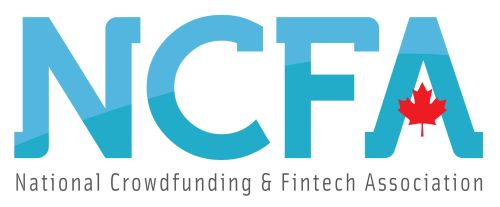Consumer-Driven Banking | April 17, 2024

 Image: Freepik
Image: Freepik2024 Budget Announces Next Steps on Canada’s Consumer-Driven Banking Framework But Lacks Clarity on Launch Date
The 2024 federal budget announcement of Canada’s Consumer-Driven Banking Framework takes another step towards implementing a ‘made in Canada’ Open Banking regime with a strong emphasis on security and consumer rights. Although the framework lacks a definitive launch date that adds a shadow of uncertainty over its practical rollout. This lack of clarity raises questions about the capacity to keep up with global digital finance initiatives with the aim of delivering timely benefits to Canadian consumers and businesses.
See: Canada’s Open Banking Framework 2024 Preview
Key Announcements
The key announcements made in Canada’s 2024 Consumer-Driven Banking Framework as outlined in the federal budget document include several important elements aimed at establishing and guiding the implementation of open banking in Canada:
- Legislative Timeline –> The government plans to introduce two key pieces of legislation, one in the spring and another in the fall of 2024, to lay down the regulatory and operational groundwork for open banking.
- Financial Consumer Agency of Canada (FCAC) Oversight –> The FCAC has been designated as the primary regulatory body for overseeing the open banking framework. This includes enhanced responsibilities and the establishment of a new Deputy Commissioner for Open Banking to provide managerial oversight.
- Funding Allocations –> The framework includes specific budgetary allocations for the preparatory and oversight work related to open banking:
- $1 million to the FCAC to help prepare the regulatory environment for open banking.
- $4.1 million up to 2026-2027 is being allocated to the Department of Finance (itself) for policy work on open banking. This funding is intended to support the development and refinement of policies governing the open banking ecosystem.
See: Open Banking: Revolutionizing Financial Data Sharing
- A formal review of the Consumer-Driven Banking Framework is scheduled to take place three years after the initial implementation, no earlier than 2027. This review will assess the effectiveness of the framework and make necessary adjustments based on the operational experiences and emerging technological and market developments.
- The introduction of a structured accreditation process for financial institutions and fintech companies wishing to participate in open banking. This process aims to ensure that all entities meet stringent security and operational standards.
- Commitment to the development of a unified technical standard for data sharing across the financial sector to ensure compatibility, security, and efficiency in the exchange of consumer data between banks and third-party providers.
- The framework emphasizes the importance of robust consumer protection measures, including clear consent mechanisms, privacy safeguards, and rights to data portability. These measures are designed to empower consumers while ensuring their financial data is handled securely and responsibly.
These announcements collectively outline the Canadian government’s strategic approach to implementing a secure and consumer-focused open banking system that aligns with international best practices and addresses the specific needs of Canadian consumers and the financial services market.
Now a Few Questions and Concerns
- Implementation and oversight timeline –>“The government will review Canada’s Consumer-Driven Banking Framework after three years”. Our interpretation is that implementation will happen within 3 years, with a post-implementation review happening after 3 years. So, technically the review will happen no earlier than 2027, and there are ‘no guarantees or specific launch date’ which is concerning given the track record and could be interpreted ‘small step forward with exit ramps‘. Even proceeding in 2027 puts Canada ten years behind Great Britain and eight years behind Australia and four behind the U.S. Not great for consumers; not great for small businesses.
- The framework includes a formal accreditation process for entities wishing to participate. This is crucial for ensuring that only qualified entities handle sensitive financial data. However, the rigidity and complexity of this process could potentially limit the number and diversity of participants, especially smaller fintechs that may not have the resources to meet stringent requirements. This could stifle innovation compared to more flexible systems in other countries.
See: Open Banking Insights: Decoding Canada’s Financial Future
- The expansion of the Financial Consumer Agency of Canada’s (FCAC) mandate to include oversight of consumer-driven banking adds an additional layer of regulatory scrutiny. While this enhances consumer protection, it also introduces more bureaucracy and complexity given the scope and demands, which could slow down the pace of innovation and adaptation within the sector, especially when compared to regions with less stringent oversight.
- The framework grants significant powers to the Minister of Finance, including the ability to refuse, suspend, or revoke access to the framework for national security-related reasons. Not a bad idea but this broad authority could be seen as introducing a level of political influence or discretion that might not be as pronounced in other jurisdictions. It could raise concerns about transparency and fairness in how these powers are exercised.
- The decision to use a single technical standard for data sharing is intended to promote security and interoperability. However, this approach can also be seen as restrictive, potentially limiting the framework’s ability to adapt to new technologies or integrate with systems that might use different standards. This contrasts with more flexible approaches seen in other countries that may allow for multiple standards or more adaptive technical frameworks.
- Under the PSD2 (Payment Services Directive 2), the EU does not mandate a single data sharing standard across all member states. Instead, it sets the regulatory framework and allows different technical standards to develop. This has led to a variety of API (Application Programming Interface) standards emerging, such as the Berlin Group’s NextGenPSD2 framework, STET, and others used by different banking groups across the continent.
- The US does not have a formal regulatory framework for open banking mandated by the government but is working on it: Open Banking Regulation in the U.S. Strikes a Chord. Instead, data sharing standards are largely driven by market forces and agreements between individual banks and fintech companies. This has resulted in a diversity of data sharing standards and protocols, including those developed by financial data aggregators and fintechs under frameworks like the Financial Data Exchange (FDX) and the earlier Open Financial Exchange (OFX).
- Although the UK initially implemented a single standard for open banking under the Competition and Markets Authority (CMA) order, it has seen broader data sharing initiatives that are not strictly limited to the open banking APIs. These include broader financial data sharing under frameworks like Open Finance, which contemplate a wider range of financial products and services beyond just banking.
- While the Consumer Data Right (CDR) in Australia started with open banking and has a primary standard, it is designed to be extended to other sectors (like energy and telecommunications) and allows for the development and endorsement of additional standards over time as the system evolves and as new sectors are brought under the CDR regime.
Outlook
Ultimately, while the framework for Consumer-Driven Banking in Canada lays a solid foundation for enhanced consumer protection and streamlined financial data sharing, its real success will hinge on the execution speed and adaptability of its policies. The framework’s potential risks and slow implementation could impede progress, leaving Canada trailing behind its international peers in financial innovation. Moving forward, it will be crucial for policymakers to refine and expedite the framework’s application, ensuring that it not only matches global standards but also actively promotes a competitive and innovative financial environment.
Learn More from NCFA Canada’s thought leadership series titled “Canada’s Open Banking Journey”
Expert interviews and insights focused on establishing a made-in-Canada open banking regime. The series aims to contribute to shaping a system that will significantly change how financial services are created, distributed, and consumed in Canada over the coming decades.

Select Episodes
1. The Foundations of Open Banking
Jul 15, 2021: Interview with Simon Redfern, Founder of the Open Bank (Germany)
Episode: Explore the origins and impact of open banking standards globally with Simon Redfern. Learn how these frameworks can drive innovation and transparency in financial services. More
2. A Global Bank’s Perspective
Sep 20, 2021: Interview with Carmela Gomez Castelao and Jose Luis Navarro Llorens, BBVA (Spain)
Episode: Discover BBVA’s strategic approach to open banking across its global operations, highlighting the balance between innovation and customer security. More
3. The API Ecosystem
Dec 1, 2021: Interview with Huw Davies, Ozone API (UK)
Episode: Huw Davies explains the importance of robust API standards for fostering a secure and interoperable open banking ecosystem. More
4. Consumer-Centric Financial Solutions
Jan 15, 2022: Interview with Søren Nielsen, Subaio (Denmark)
Episode: Søren Nielsen shares how Danish fintech Subaio focuses on consumer empowerment through open banking, enhancing financial management tools. More
5. Fintech Integration and Innovation
Mar 22, 2022: Interview with Abe Karar, Fintech Galaxy (UAE)
Episode: Explore the integration of open banking with fintech ecosystems, highlighting innovations and new product development. More

 The National Crowdfunding & Fintech Association (NCFA Canada) is a financial innovation ecosystem that provides education, market intelligence, industry stewardship, networking and funding opportunities and services to thousands of community members and works closely with industry, government, partners and affiliates to create a vibrant and innovative fintech and funding industry in Canada. Decentralized and distributed, NCFA is engaged with global stakeholders and helps incubate projects and investment in fintech, alternative finance, crowdfunding, peer-to-peer finance, payments, digital assets and tokens, artificial intelligence, blockchain, cryptocurrency, regtech, and insurtech sectors. Join Canada’s Fintech & Funding Community today FREE! Or become a contributing member and get perks. For more information, please visit: www.ncfacanada.org
The National Crowdfunding & Fintech Association (NCFA Canada) is a financial innovation ecosystem that provides education, market intelligence, industry stewardship, networking and funding opportunities and services to thousands of community members and works closely with industry, government, partners and affiliates to create a vibrant and innovative fintech and funding industry in Canada. Decentralized and distributed, NCFA is engaged with global stakeholders and helps incubate projects and investment in fintech, alternative finance, crowdfunding, peer-to-peer finance, payments, digital assets and tokens, artificial intelligence, blockchain, cryptocurrency, regtech, and insurtech sectors. Join Canada’s Fintech & Funding Community today FREE! Or become a contributing member and get perks. For more information, please visit: www.ncfacanada.org
Related Posts
- SEO Powered Content & PR Distribution. Get Amplified Today.
- PlatoData.Network Vertical Generative Ai. Empower Yourself. Access Here.
- PlatoAiStream. Web3 Intelligence. Knowledge Amplified. Access Here.
- PlatoESG. Carbon, CleanTech, Energy, Environment, Solar, Waste Management. Access Here.
- PlatoHealth. Biotech and Clinical Trials Intelligence. Access Here.
- Source: https://ncfacanada.org/small-step-forward-as-feds-publish-straw-man-open-banking-framework/



